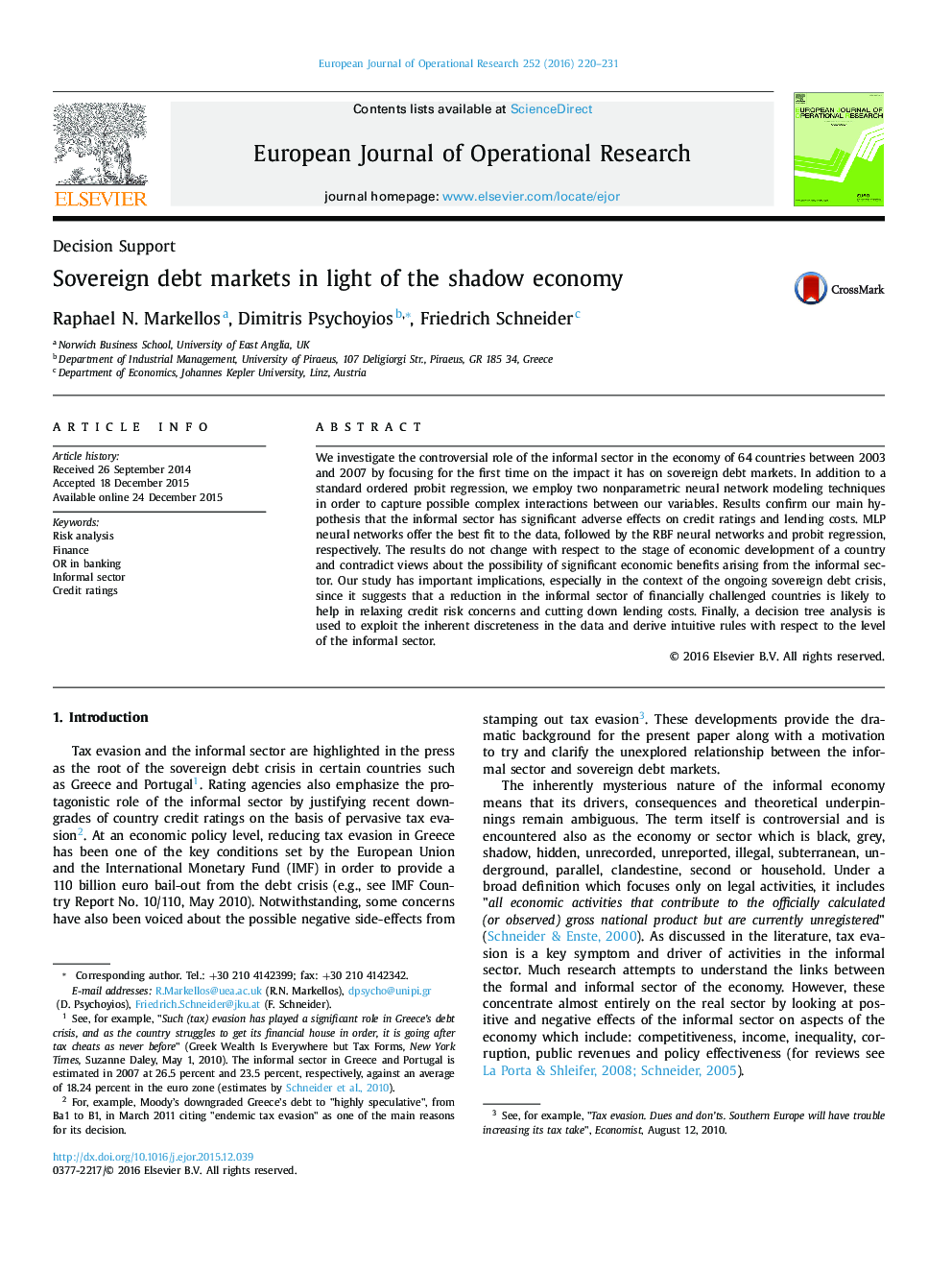| Article ID | Journal | Published Year | Pages | File Type |
|---|---|---|---|---|
| 6895804 | European Journal of Operational Research | 2016 | 12 Pages |
Abstract
We investigate the controversial role of the informal sector in the economy of 64 countries between 2003 and 2007 by focusing for the first time on the impact it has on sovereign debt markets. In addition to a standard ordered probit regression, we employ two nonparametric neural network modeling techniques in order to capture possible complex interactions between our variables. Results confirm our main hypothesis that the informal sector has significant adverse effects on credit ratings and lending costs. MLP neural networks offer the best fit to the data, followed by the RBF neural networks and probit regression, respectively. The results do not change with respect to the stage of economic development of a country and contradict views about the possibility of significant economic benefits arising from the informal sector. Our study has important implications, especially in the context of the ongoing sovereign debt crisis, since it suggests that a reduction in the informal sector of financially challenged countries is likely to help in relaxing credit risk concerns and cutting down lending costs. Finally, a decision tree analysis is used to exploit the inherent discreteness in the data and derive intuitive rules with respect to the level of the informal sector.
Related Topics
Physical Sciences and Engineering
Computer Science
Computer Science (General)
Authors
Raphael N. Markellos, Dimitris Psychoyios, Friedrich Schneider,
